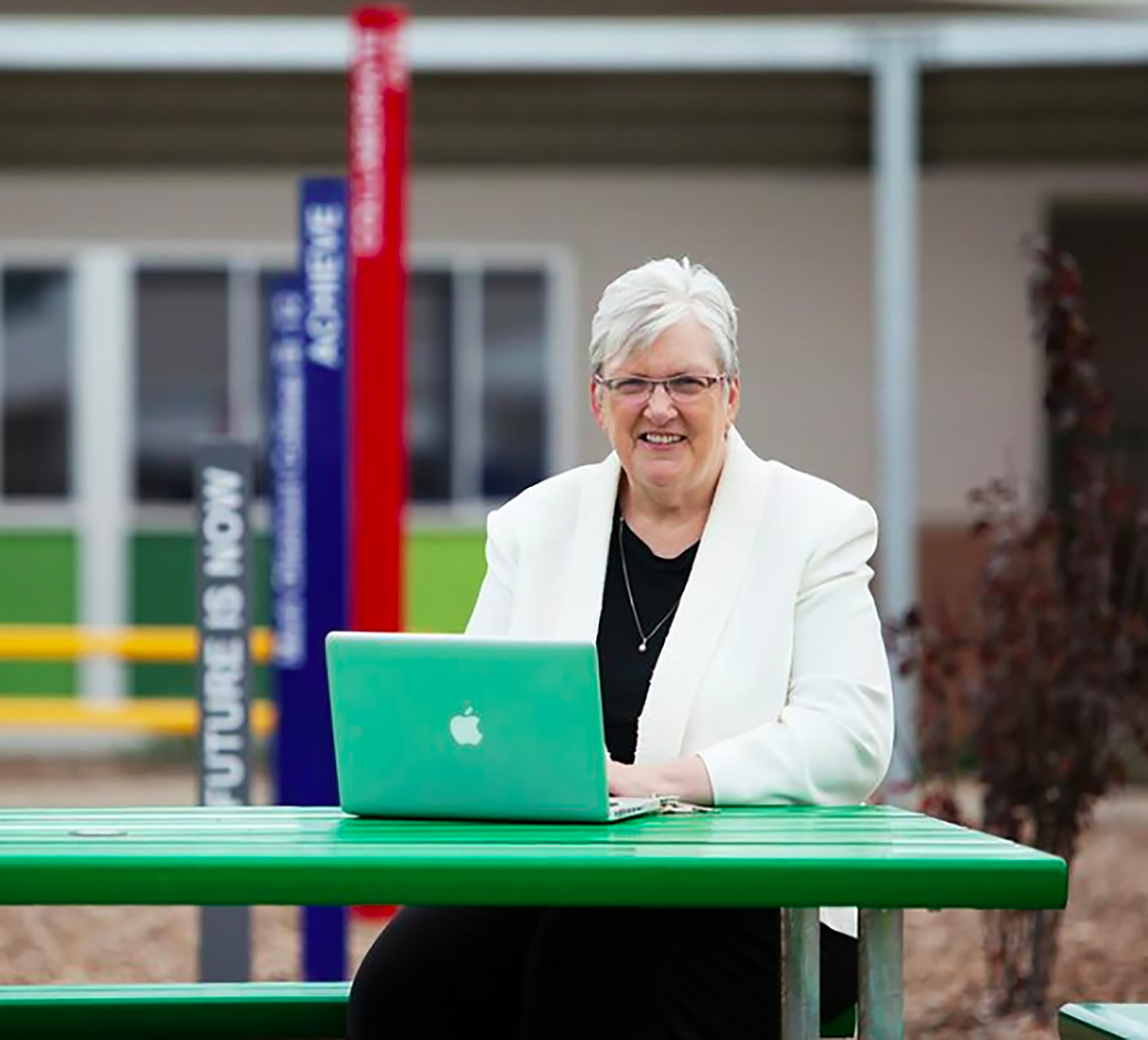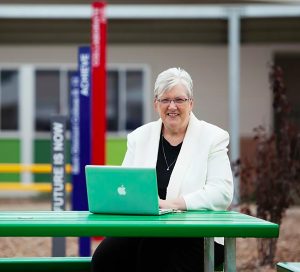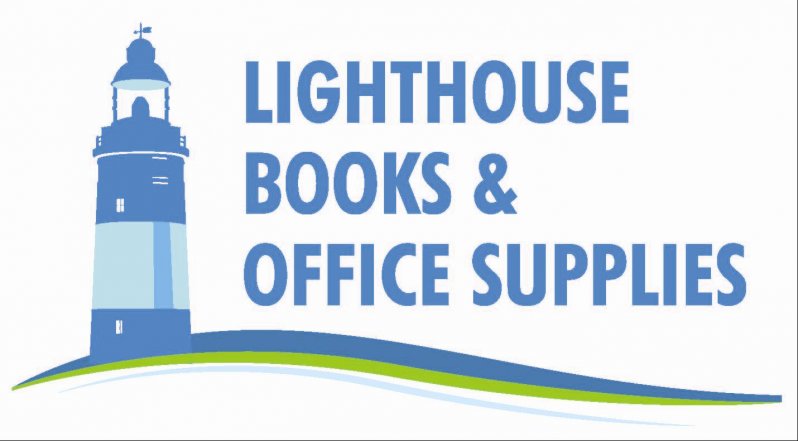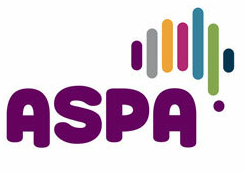
Lynne Symons
22nd November 2016
When Lynne Symons finished work with the Department in August this year (2016) she closed the book on 43 years of service and 24 years of being a principal.
Lynne started her career as a ‘walk-in’ teacher in 1973. Such appointments were common at the time. Young graduates looking for employment could report to Flinders Street and offer their services. They literally ‘walked in’ off the street. In fact, one urban myth has it that Departmental recruiting staff used to canvass eligible, young people walking by the building. At the time, Lynne recalls that she was young, about to get married, highly qualified – she had both a first class honours as well as a masters degree in Science – and in need of work. The staffing officer for secondary at the time – Bill Minns, ‘a lovely man’ – was so impressed by the qualifications that he offered her a school on the spot, ‘pick a school, any school’. She chose Royal Park High School. As impressive as her qualifications were, the trade-off was that she had to complete the Diploma In Education from the University of Adelaide, which she did by attending lectures and classes on Saturday over the next 3 years.
Lynne recalls her years at Royal Park HS as typical of any beginning teacher’s first appointment – the fear, excitement, challenge, camaraderie, fun – but at that point she had not committed to the profession. There were still other possible futures, even including the diplomatic corps. Her Damascene moment came when she heard Joe Laslett speak. At the time South Australia was recognised for its educational innovation. It was something of a national leader in introducing changes that were intended to broaden the curriculum, personalise the experience of learning, soften the authoritarian and mono-culture of the school and experiment with different structures and approaches for the delivery of schooling. Our schools were also increasingly being called on to tackle the ‘educational disadvantage’ which belied the then conventional ’myth of equality’. Joe Laslett at the time was principal of Morialta High School, which had been opened in 1975 as a version of the modern ’light house school’. Amongst other innovations in educational theory and practice, Morialta was set up with sub-schools, it introduced ‘alternative education’ for disengaged students and had a radical doctrine of ‘mastery of learning’ for students. Joe Laslett had been invited by a group of staff at Royal Park HS who were keen to find out about the new school. Lynne said that ‘a bell went off in my head’, as she suddenly realised just how important education was and just how good – or so much better – it could be. At the time, Laslett could choose his staff so she applied for a position. She was unsuccessful on the first attempt but then joined the staff of Morialta in 1975.
Lynne’s memories of Morilalta are very positive. She was struck particularly by the quality and depth of the leadership group that Laslett had formed at the school – Yvonne Hill, Madeleine Woolley, Marilyn Davis … – although she did note that Laslett’s own leadership style was more in the tradition of the philosopher-king or enlightened despot than the democratic decision-maker. But he was certainly able to attract and lead staff with the power of his vision and commitment. The absolute importance of a quality leadership team to support the principal and the ability of the principal to choose and form the leadership team have remained as two fundamental givens in Lynne’s philosophy of educational leadership.
In her time at Morialta (1975-78), Lynne became involved in the newly created Women’s Advisory Unit. Again she was impressed by the quality of people working there, particularly Denise Bradley. The WAU – the forerunner of the Department’s Equal Opportunity Unit – with its focus on the education of girls was a natural fit for a young, female, Maths-Science teacher. Her initial appointment was as the part-time Girls and Science advisor. She was involved in the writing of the seminal Education of Girls policy document. This was the time when programs designed specifically to promote the involvement of girls in Maths, Science and Computing were first developed.
But the part-time nature of the appointment in the Women’s Advisory Unit presented a problem, one that was resolved in an unexpected and, as it transpired, fortuitous way. The part-time nature of the position meant that it was impossible to accommodate her other work as a Maths-Science (Chemistry) teacher on the school’s line timetable. Laslett suggested that she work in the alternative education unit – known as The Huts – where there was no such constraint. This was the beginning of her work in the ever-expanding area of alternative or non-mainstream education. She remembers that at the time the Morialta unit even ran a shop where the students sold arts and crafts they had made.
In 1983, after 3 years with the WAU, Lynne was appointed as a counsellor, one of a team of three, to The Parks. The Parks Community Centre, had been set up in the early 1970s with its focus on educational disadvantage. It was another example of the educational innovation of the time. The years at The Parks were very rewarding but declining numbers meant that 3 Counsellor positions became untenable and it was Lynne’s position that went. She was transferred to Woodville High School where they needed a female counsellor. Lynne admits that she found the displacement experience very difficult, even though she could see the perfect sense behind it.
Working as a counsellor at Woodville from 1985, Lynne was still being seconded in and out of positions and, as she put it the ‘very scary’ principal, Margaret Grant, finally challenged her to focus on one position and put her energy into becoming a principal. From 1987, Lynne was also balancing the needs of her young family.
The first position of principal came when she was appointed to head the Kilburn Work Education Centre in 1991. The work involved support for students with disabilities and Lynne remembers the general facilities at the Kilburn site as very poor, with many OHS issues. The unit was effectively closed down and reborn at Beafield. Lynne also acknowledged the strong support and backing Margaret Grant provided in her first years as a principal.
Lynne then (1993) applied for and won the principalship at Bowden Brompton Community School. This was yet another of the specialist schools set up in South Australia. It was set up initially by Pat Thomson. Over the years, its identity shifted from that of local, community school to a broader alternative school for students who could not handle mainstream schooling mainly because of behaviour management problems. It enabled students to learn at their own pace and work with modified programs. Over the period of Lynne’s principalship (1993-98) the school grew significantly and spread across 3 sites.
Lynne’s next position (1999) as the principal coordinating the Juvenile Justice Schools (Magill and Cavan) involved her working closely with Families SA. It was only a short appointment but importantly it saw both centres working more closely together, with a re-emphasis on their educational charter.
In 2000, Lynne was appointed principal, Taperoo High School. This appointment was very personal as Lynne was herself a former pupil of the school. She describes herself, proudly, as a child of the western suburbs. She went to Le Fevre Primary School and then Taperoo High School. But going back to Taperoo High after 30 years, Lynne said that nothing had changed, and change was definitely required. As with the Kilburn Work Education Centre 10 years earlier, Lynne had the responsibility of closing Taperoo; but from the closure came Ocean View College B-12. Lynne was principal of Ocean View from 2001 to 2007. She really enjoyed her years there.
During 2007, Lynne worked briefly in the Department, in what was then referred to as Education Works, looking at new models for schools. Fortuitously, Ocean View College was seen as a model for the B-12 school. In 2008 she became principal of Gepps Cross Girls High School. This was 30 years after her first involvement with girls’ education in the Women’s Advisory Unit. Lynne spoke very positively of her time at Gepps Cross. She found the school, with large refugee numbers, small enough to know every student by name. She also said that many behaviour problems evident in the conventional high school setting did not even arise in the single-sex (girls) school. She went so far as to declare that ‘teaching at an all girls’s school is magic’ and that she would ‘fight to the death to keep girls’ schools going’. She also noted that the positive spirit of the school survived a major fire when she was there.
In 2009 Lynne was appointed as principal of Mark Oliphant College, one of the new, purpose-designed and built ’super schools’. Like Ocean View it was also a B-12 school and in many ways Lynne’s leadership at Mark Oliphant College was shaped by her experience and success at Ocean View. Mark Oliphant College was a very large, comprehensive, community-focused school. It served a a community characterised by significant levels of socio-economic disadvantage. The school was designed to deliver, seamlessly, all relevant services for children, youth and their families.
The initial leadership challenge at Mark Oliphant was to create a common culture and bring the 4 separate Smithfield sites (kindergarten, junior primary, primary and high) together. It was not until early 2011 that the new school, with its distinctive design of 4 sub-schools round a central common area (‘village green’), was opened.
As the school’s first principal Lynne is, justifiably, very proud of its success. The student population increased dramatically – a cap had to be applied at 1,600 – as did high school completion and university participation rates. Mark Oliphant became recognised, and won awards, as a leading school in technology and innovation generally. As her last school, Mark Oliphant drew on the incredible range of experience and expertise that had characterised the whole of Lynne’s professional career. The school offered the chance to apply in one setting her rich background in designing and delivering schooling to maximise its value and relevance for all students, and particularly for those students whose schooling can be so easily compromised by disadvantage and hardship.
Lynne stressed the importance of her leadership team at Mark Oliphant. She acknowledges that she was given the opportunity to choose the team and there was also an extra leadership component. At the same time, she believes that her success as a principal always rested on the quality of the wider leadership team. She also believes that staff capacity can only be built if there is a successful leadership team in place. In fact, she emphasised throughout the value of a talented, supportive leadership team and she was very proud of the fact that 10 of those who worked at some stage or other in one of her many leadership teams had themselves gone on to become principals. Lynne’s work in supporting the professional development of teachers and school leaders was recognised this year (2016) when she received the John Laing Professional Development Award (Principals Australia Institute).
After her 7 year tenure at Mark Oliphant College, Lynne moved into the Department as the Principal Leadership Consultant in the South Australian Institute of Educational Leadership (DECD). The 2 programs she worked on were the Leadership Advisor Program – the training of a group of ‘coaches’ to support new principals/site leaders – and the Professional Acceleration Program which was designed to prepare deputy principals and other senior leaders for the principalship. She said that she believed passionately in these 2 programs and that their success represented the ‘full stop’ to her career in the Department. From August this year, after literally a life-time career in the Department, she finally became a free agent and set herself ups as a leadership consultant (makelearningbetter.com).
Looking back over her long career, Lynne made the case that the role of principal has always been very demanding and is definitely not for the faint-hearted. It is also a position where it is not possible to perform at the level required without significant personal sacrifice. At the same time, she believes that the position of principal is a tremendously powerful and privileged one. The dilemma, as Lynne sees it, is that the position continues to become ever more important to the success of schooling at the very time the work involved in being a principal and the expectations placed on the role become ever more demanding. Lynne also sees the same dilemma reflected in public schooling itself. As the need for quality public schooling continues to increase – as families come under ever more pressure and other key social institutions continue to decline – the demands that the local state school must accommodate and absorb continue to increase.
Sitting behind such dilemmas, Lynne identified the shift from a Department to a Ministry of Education as one of the more negative changes over her career. She feels that the shift compromised what she remembers as the strong, independent and professional voice of the Department. She recalled an incident with Garth Boomer, one of the more iconic figures from the Department of the 1970s. At the time, education policy and practice were driven by such officers. Boomer challenged her on the issue of educational disadvantage in a very direct way: Stop treating the poor children and get them to learn something! But people of the educational status of Boomer and the likes of Director-General John Steinle were then lost. With the transition to a ministry, executive positions become more politicised, policy was drawn from outside the Department, system directions became more ambiguous and more closely aligned with the election cycle and the language of schooling was less precise. There was also a profound loss of shared culture and history. It also meant that what happened at the system level, and even at the level of the individual school, could be exploited as political capital. Public schooling became more politicised and the consequences have been damaging. It is this type of background that Lynne believes has damaged the status both of the teacher and the public school.
Lynne also noted that both leadership and management are required and she was equally proud of her management skills. She observed that for all the complex pressures on schools, all the purposes they are required to serve and all the extra tasks and responsibilities they take on for their students, they still need to function, every day, in an environment which is deliberate, safe, secure, comfortable, predictable and effective.
Finally, for all the sobering analysis of the fundamental changes over time, the dramatically increased work load and all the contemporary challenges facing schools, teachers and principals, Lynne remains very positive about the future. She also remains very proud of her achievements as a principal.

Lynne Symons


















